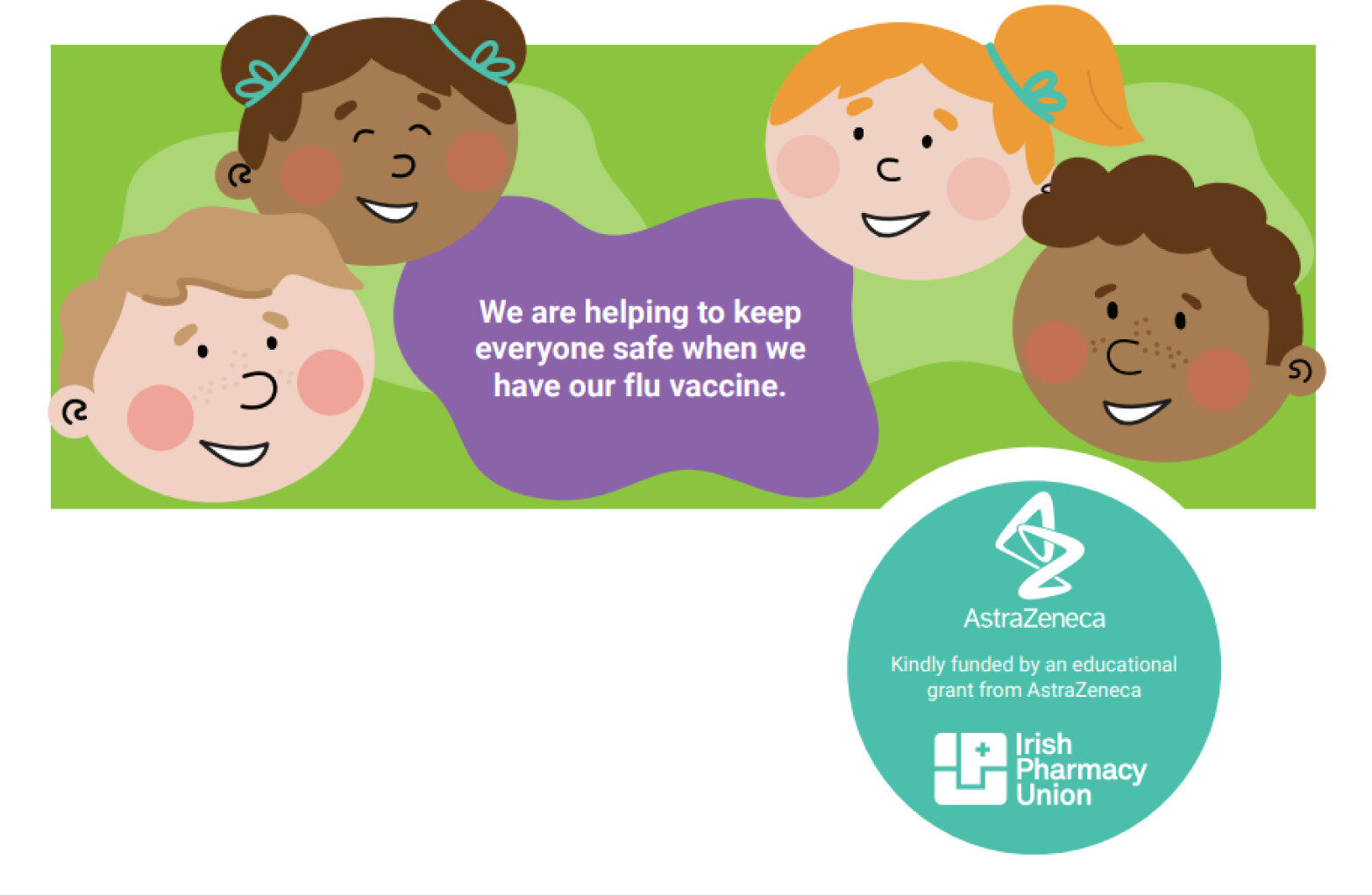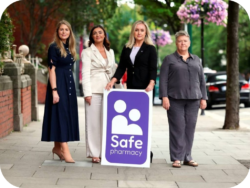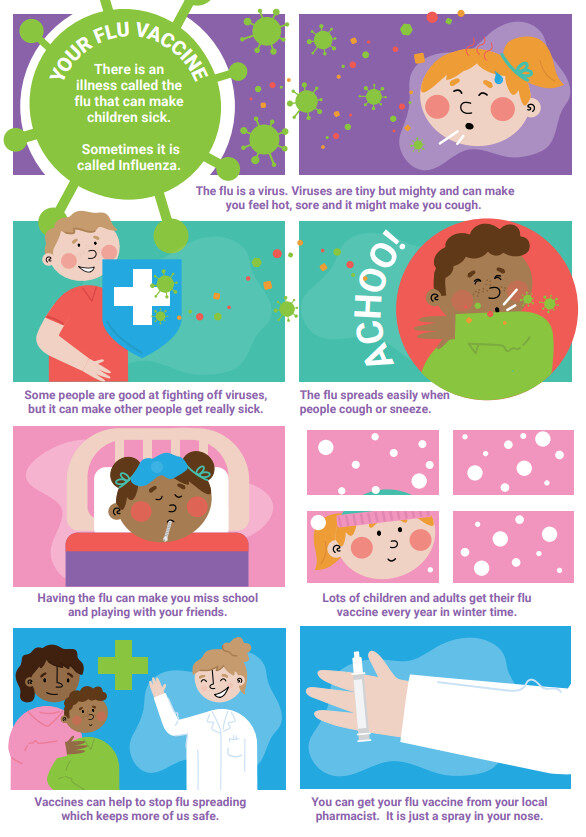The
children’s Nasal Flu Vaccine
This flu season children between the age of 2 – 17 are eligible for a free flu vaccine, this comes as a simple nasal spray and can be booked in your local participating community pharmacy. The flu vaccine helps protect children from the flu. If nasal spray not suitable, an alternative is available.
Most children who get the flu have mild symptoms. However, children and young people with long-term health conditions may be at risk of serious complications from flu.
Speak to your pharmacist for more information about their service and the terms and conditions that apply. Further information available at hse.ie/flu


The
children’s Nasal Flu Vaccine
This flu season children between the age of 2 – 17 are eligible for a free flu vaccine, this comes as a simple nasal spray and can be booked in your local participating community pharmacy.
The flu vaccine helps protect children from the flu. If nasal spray not suitable, an alternative is available.
Most children who get the flu have mild symptoms. However, children and young people with long-term health conditions may be at risk of serious complications from flu.
Speak to your pharmacist for more information about their service and the terms and conditions that apply. Further information available at hse.ie/flu
How is the nasal flu vaccine given?
Watch our quick 30-second video
Why should children get the nasal flu vaccine?
The flu vaccine helps to protect children against flu.
Most children who get the flu have mild symptoms. But children and young people with long-term health conditions are at risk of serious complications from flu.
In some children, flu can lead to problems such as:
- pneumonia
- bronchitis
- inflammation of the brain (encephalitis)
Children with flu may need hospital treatment. Some may need to stay in intensive care.
Almost 5,000 children were admitted to hospital with complications of flu between 2009 and 2019. Almost 200 children had treatment in intensive care and 40 children died.
What children should not get the nasal flu vaccine?
The HSE advises that the following children should not get the nasal flu vaccine:
- Have a severe allergic reaction to a previous dose of the flu vaccine or any of its ingredients
- Have asthma and have been wheezy or needed their inhaler more than usual in the 3 days before they are due to get the flu vaccine previous dose of the flu vaccine or any of its ingredients
- Are taking medicines called salicylates, which include aspirin
- Have a severely weakened immune system because of certain medical conditions or treatments
- Are living with someone who has a severely weakened immune system (for example, a person who recently had a bone marrow transplant)
- Have taken antiviral medication for flu within the previous 48 hours
- Have a condition which means they have a leak of cerebrospinal fluid (CSF) - the fluid that surrounds the brain and spinal cord
- Are pregnant
- Have severe neutropenia (low levels of a type of white blood cell)
If your child cannot get the nasal flu vaccine, your pharmacist will talk to you about giving your child a different flu vaccine, which is given by injection.
Terms and conditions
- Speak to your pharmacist for more information about their service and the terms and conditions that apply.
- Subject to availability.
- Eligibility criteria apply.
- Parent/guardian consent required where child is <16 years.
Further information available at hse.ie/flu
You can help your child understand what happens when they visit their community pharmacist to have their nasal flu vaccine administered by showing them the leaflet below:



